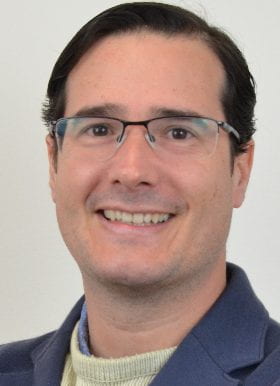
Carlos Cruchaga, PhD
Barbara Burton and Reuben M. Morriss III Professor, WashU Psychiatry
- Phone: 314-286-0546
- Email: cruchagac@nospam.wustl.edu
Genetic and multi-omic approaches to identify novel variants, genes and pathways implicated in neurodegeneration
My research interests are focused on leveraging multi-omic data (genetic, genomics, proteomics, epigenomics, lipidomis and others) and deep clinical phenotypes from large and well characterized neurodegenerative diseases (i.e: Alzheimer, Parkinson, Frontotemporal dementia) cohorts in order to identify novel genes, pathways, molecular biomarkers and drug targets for these diseases.
Unprecedented advances in sequencing and high-throughput omics technologies have greatly increased the power and precision of analytical tools used in genomic research and have accelerated the drive toward personalized medicine. Human biospecimens that are analyzed using these new and developing technology platforms have emerged as a critical resource for basic and translational research in neurodegenerative diseases because they are a direct source of molecular data from which targets for therapy, detection, and prevention are identified. The reliability of the data derived from these new platforms is dependent on the quality and consistency of the biospecimens being analyzed. As a result of the increased requirement for biospecimen quality, standardization of biospecimen resources using state-of the-science approaches has become a pressing need across the research enterprise.
In my lab, we generate genetic and omic data for a unique cohorts of Alzheimer and Parkinson disease cohort and we use novel approaches to understand the biological process that lead to disease.
Multi-level data integration is already facilitating precision medicine and advancing medicine at the individual patient level. The identification of novel disease- associated genes, linking gene variants to human phenotypes, and the use of Mendelian randomization (a method to estimate causal effects) to predict biomarker validity or drug response are some examples of the kind of data integration of deeply clinical and molecular phenotyped cohorts. These approaches will put us one step closer to not only precision medicine but also precision treatment timing, as we will be able to predict when is the best time for a specific treatment.
In summary, the mission of our lab is to perform a world-class research where genetics, omics and functional genomics studies in neurodegeneration and diseases of the CNS are translated into improvements in human health through better understanding of the molecular underpinnings of disease.